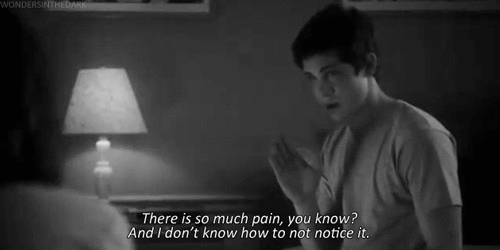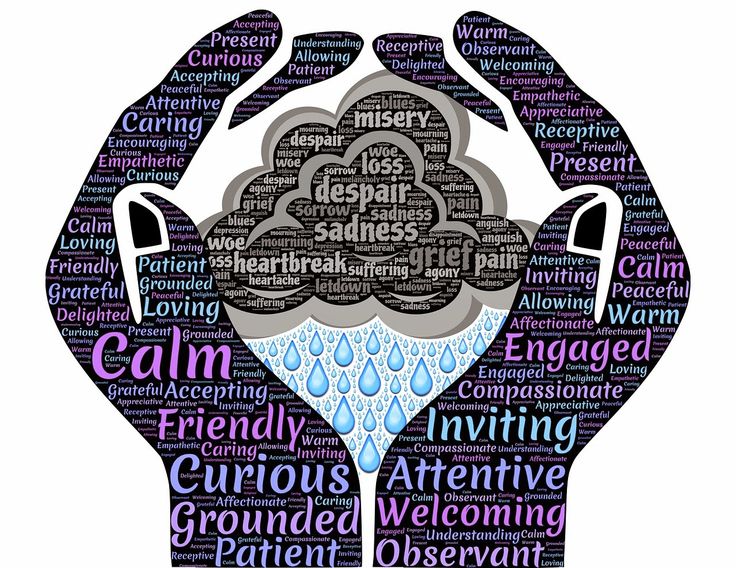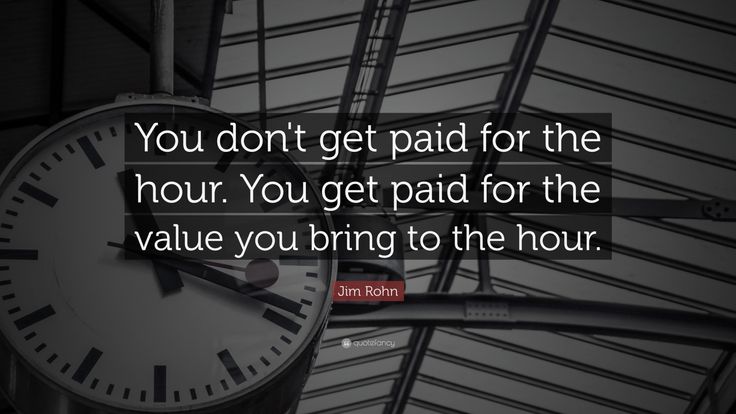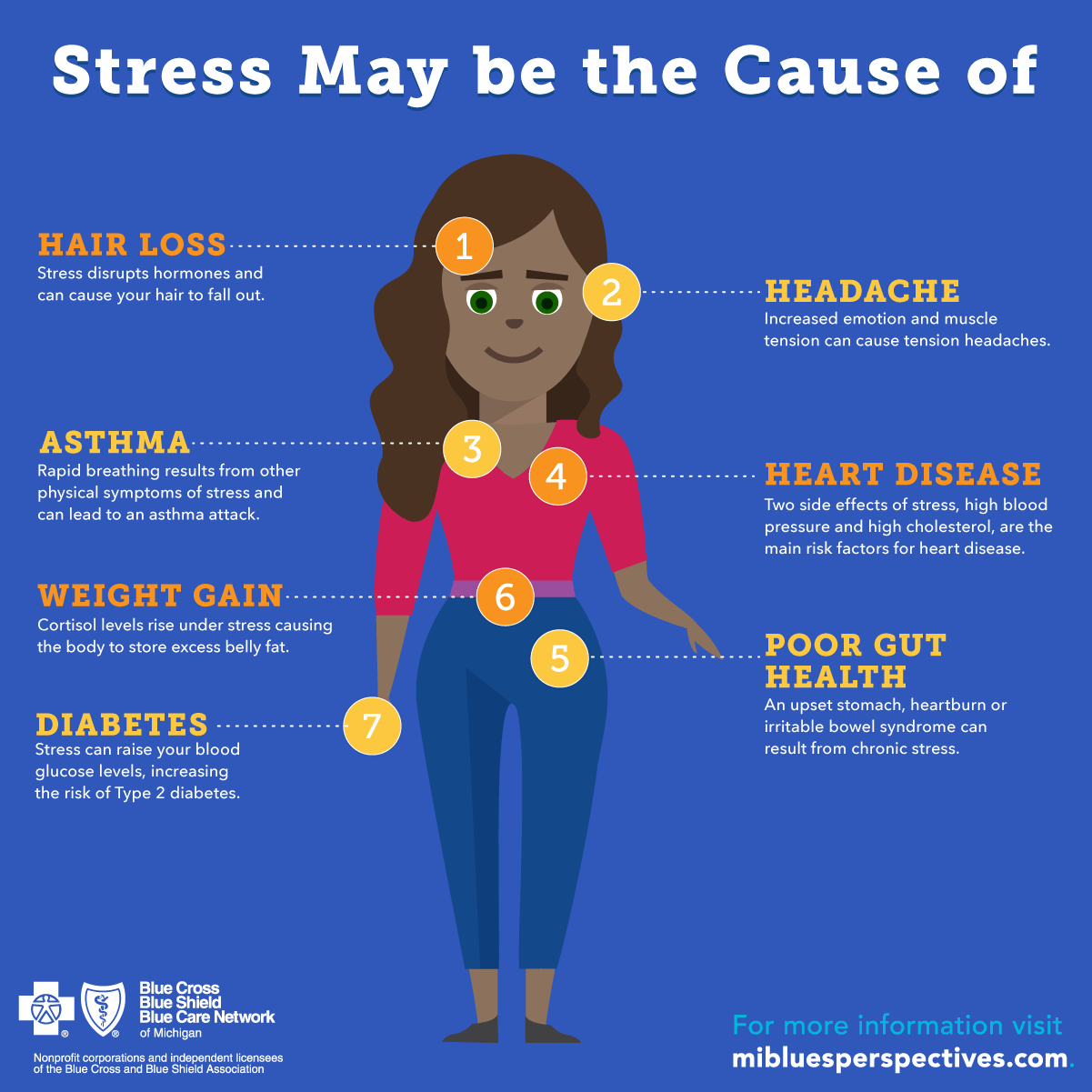Friend in pain
9 Ways to Help Someone in Pain: What to Say
A few months ago I wrote about how we can sit with our own painful emotions. Often we don’t. Instead, we gloss over negative feelings. We self-medicate. We berate ourselves for having negative feelings, making us feel even worse. (I can’t believe I’m upset about something so small! I’m so sensitive. I’m so stupid for feeling anxious about that.)
What’s also difficult is sitting with someone else’s pain and supporting them. It can feel awkward and uncomfortable — especially if we have a hard time with our own emotions. Our knee-jerk reaction may be to ignore what’s happening, offer solutions, be overly positive or act on any number of behaviors that dismiss the person’s feelings.
This month we asked two psychotherapists to share their insights into how we can truly support someone through their pain (and how not to).
Reach out.
When people are in pain, they’re less likely to reach out for support, even though they need it, said Rachel Eddins, M. Ed., LPC-S, a psychotherapist in private practice in Houston, Texas.
The first important step in supporting someone is to simply reach out. Let them know that you’re there for them. “Don’t be afraid of their pain.”
When Eddins was going through a tough time, one of the best things a person did for her was to say: “I was calling to check in with you and see how you’re doing. If you want to talk about things, that’s great. I’m happy to do so. If you want to just connect and talk about other things, that’s great, too.”
Eddins’s friend acknowledged how she was feeling and was willing to be there regardless of whether she wanted to talk about the situation. After that, she also offered to do something fun together, “which was even better.”
Really listen to them.
Another key part of showing support is actively listening to the person, according to Eva-Maria Gortner, Ph.D, a counseling psychologist in private practice in Houston, Texas. She said that this includes:
- Approaching your conversation without any assumptions.

- Paraphrasing the other person’s words to make sure you understand, such as: “It sounds like work has been getting tougher because of all these new demands at your job.”
- Acknowledging how they’re feeling based on what they’ve said so far, such as: “Getting this feedback from your boss is stressing you out.”
- Finding something positive to say to show you respect them, such as: “I appreciate you trusting me with this problem.”
- Asking gentle, open-ended questions to better understand what they’re thinking and feeling, such as: “How come?”; “What do you think about …?”; “How do you feel about …?”
Don’t offer solutions.
Trying to fix the situation makes people feel misunderstood and not cared for, Eddins said. It invalidates their emotions. And it “almost assumes that they can’t problem solve.”
Don’t make the situation about yourself.
According to Gortner, this might look like saying: “This reminds me of when my grandmother died…. ”; “I feel the exact same way, let me tell you about….”; “When my aunt had cancer, she tried this new treatment…”; “After my miscarriage, we tried again right away and it worked! You should do the same.”
”; “I feel the exact same way, let me tell you about….”; “When my aunt had cancer, she tried this new treatment…”; “After my miscarriage, we tried again right away and it worked! You should do the same.”
Pain is complex, and can feel like a roller-coaster, Eddins said. Focus instead on the person’s unique experience, she said. For instance, you might say: “Help me understand what it’s like for you. I’d like to understand more about how you’re feeling if you’d like to share. You’re going through so much, what’s it like for you?”
She shared these other helpful phrases you can say: “I’m so sorry to hear that. I’m here with you. You’re in my thoughts. Thinking of you. That sounds so painful. I’m so sorry that you’re hurting right now. I know you’ve been through a lot. I’m thinking of you and sending you big hugs. I love you.”
Don’t assume or prognosticate.
What also doesn’t help is “making an assumption about the person’s situation or feelings, or predicting the future (which no one can),” said Gortner, who writes the blog “Everyday Psychology. ” She shared these examples: “Tomorrow, you will feel better,” “Give it a week,” “He’ll come around,” “I have a feeling you will be just fine,” or “It will work out next time.”
” She shared these examples: “Tomorrow, you will feel better,” “Give it a week,” “He’ll come around,” “I have a feeling you will be just fine,” or “It will work out next time.”
Don’t minimize their emotions.
According to Gortner, we might minimize someone else’s emotions by saying anything from “You’ll get over it” to “Come on, it’s not that bad” to “Just dust yourself off, and try again.”
This kind of talk also focuses on the future. And, as Eddins said, “Your friend is not in the future, your friend is right now in the pain. Show up for them in the present.”
Don’t compare their pain to anyone else’s.
“When we’re dealing with difficult emotions, it’s always possible to find a ‘worse’ situation as well as a similar situation,” Eddins said. However, this too is invalidating, she said. Whether someone else has it worse doesn’t change the emotional pain the person is feeling in this moment. Their pain is real, she said. “[W]alking with them in the present moment is the most loving, compassionate thing you can do. ”
”
Acknowledge you don’t know what to say.
Sometimes, we don’t know what to say, so we don’t say anything or we don’t acknowledge the pain a person is dealing with. But this sends “the message that you don’t care or aren’t interested or are too uncomfortable to be there for your friend in need,” Eddins said.
She suggested simply saying: “I’m so sorry, I really don’t know what to say right now.”
Offer concrete support.
The question “Is there anything I can do?” can actually overwhelm someone who’s in pain, Gortner said. “They may not want to burden you or feel overwhelmed by trying to figure out what they want you to do for them.”
Instead, she suggested offering concrete support, such as: “I’m bringing over dinner tonight. If you don’t feel like talking, I will simply leave it at the door.”
Sitting with someone who’s in pain can be tough. But the most supportive thing we can do is to truly listen and be present with them in that very moment — without trying to fix the situation, making assumptions, making it about ourselves or minimizing their pain.
9 Ways to Help Someone in Pain: What to Say
A few months ago I wrote about how we can sit with our own painful emotions. Often we don’t. Instead, we gloss over negative feelings. We self-medicate. We berate ourselves for having negative feelings, making us feel even worse. (I can’t believe I’m upset about something so small! I’m so sensitive. I’m so stupid for feeling anxious about that.)
What’s also difficult is sitting with someone else’s pain and supporting them. It can feel awkward and uncomfortable — especially if we have a hard time with our own emotions. Our knee-jerk reaction may be to ignore what’s happening, offer solutions, be overly positive or act on any number of behaviors that dismiss the person’s feelings.
This month we asked two psychotherapists to share their insights into how we can truly support someone through their pain (and how not to).
Reach out.
When people are in pain, they’re less likely to reach out for support, even though they need it, said Rachel Eddins, M. Ed., LPC-S, a psychotherapist in private practice in Houston, Texas.
Ed., LPC-S, a psychotherapist in private practice in Houston, Texas.
The first important step in supporting someone is to simply reach out. Let them know that you’re there for them. “Don’t be afraid of their pain.”
When Eddins was going through a tough time, one of the best things a person did for her was to say: “I was calling to check in with you and see how you’re doing. If you want to talk about things, that’s great. I’m happy to do so. If you want to just connect and talk about other things, that’s great, too.”
Eddins’s friend acknowledged how she was feeling and was willing to be there regardless of whether she wanted to talk about the situation. After that, she also offered to do something fun together, “which was even better.”
Really listen to them.
Another key part of showing support is actively listening to the person, according to Eva-Maria Gortner, Ph.D, a counseling psychologist in private practice in Houston, Texas. She said that this includes:
- Approaching your conversation without any assumptions.

- Paraphrasing the other person’s words to make sure you understand, such as: “It sounds like work has been getting tougher because of all these new demands at your job.”
- Acknowledging how they’re feeling based on what they’ve said so far, such as: “Getting this feedback from your boss is stressing you out.”
- Finding something positive to say to show you respect them, such as: “I appreciate you trusting me with this problem.”
- Asking gentle, open-ended questions to better understand what they’re thinking and feeling, such as: “How come?”; “What do you think about …?”; “How do you feel about …?”
Don’t offer solutions.
Trying to fix the situation makes people feel misunderstood and not cared for, Eddins said. It invalidates their emotions. And it “almost assumes that they can’t problem solve.”
Don’t make the situation about yourself.
According to Gortner, this might look like saying: “This reminds me of when my grandmother died…. ”; “I feel the exact same way, let me tell you about….”; “When my aunt had cancer, she tried this new treatment…”; “After my miscarriage, we tried again right away and it worked! You should do the same.”
”; “I feel the exact same way, let me tell you about….”; “When my aunt had cancer, she tried this new treatment…”; “After my miscarriage, we tried again right away and it worked! You should do the same.”
Pain is complex, and can feel like a roller-coaster, Eddins said. Focus instead on the person’s unique experience, she said. For instance, you might say: “Help me understand what it’s like for you. I’d like to understand more about how you’re feeling if you’d like to share. You’re going through so much, what’s it like for you?”
She shared these other helpful phrases you can say: “I’m so sorry to hear that. I’m here with you. You’re in my thoughts. Thinking of you. That sounds so painful. I’m so sorry that you’re hurting right now. I know you’ve been through a lot. I’m thinking of you and sending you big hugs. I love you.”
Don’t assume or prognosticate.
What also doesn’t help is “making an assumption about the person’s situation or feelings, or predicting the future (which no one can),” said Gortner, who writes the blog “Everyday Psychology. ” She shared these examples: “Tomorrow, you will feel better,” “Give it a week,” “He’ll come around,” “I have a feeling you will be just fine,” or “It will work out next time.”
” She shared these examples: “Tomorrow, you will feel better,” “Give it a week,” “He’ll come around,” “I have a feeling you will be just fine,” or “It will work out next time.”
Don’t minimize their emotions.
According to Gortner, we might minimize someone else’s emotions by saying anything from “You’ll get over it” to “Come on, it’s not that bad” to “Just dust yourself off, and try again.”
This kind of talk also focuses on the future. And, as Eddins said, “Your friend is not in the future, your friend is right now in the pain. Show up for them in the present.”
Don’t compare their pain to anyone else’s.
“When we’re dealing with difficult emotions, it’s always possible to find a ‘worse’ situation as well as a similar situation,” Eddins said. However, this too is invalidating, she said. Whether someone else has it worse doesn’t change the emotional pain the person is feeling in this moment. Their pain is real, she said. “[W]alking with them in the present moment is the most loving, compassionate thing you can do. ”
”
Acknowledge you don’t know what to say.
Sometimes, we don’t know what to say, so we don’t say anything or we don’t acknowledge the pain a person is dealing with. But this sends “the message that you don’t care or aren’t interested or are too uncomfortable to be there for your friend in need,” Eddins said.
She suggested simply saying: “I’m so sorry, I really don’t know what to say right now.”
Offer concrete support.
The question “Is there anything I can do?” can actually overwhelm someone who’s in pain, Gortner said. “They may not want to burden you or feel overwhelmed by trying to figure out what they want you to do for them.”
Instead, she suggested offering concrete support, such as: “I’m bringing over dinner tonight. If you don’t feel like talking, I will simply leave it at the door.”
Sitting with someone who’s in pain can be tough. But the most supportive thing we can do is to truly listen and be present with them in that very moment — without trying to fix the situation, making assumptions, making it about ourselves or minimizing their pain.
Pain: friend or foe?
No matter how much we complain about a headache or a toothache, nevertheless, pain is a magnificent and thoughtful tool with which evolution has taught us to survive. The pain that comes after touching fire, falling, etc., taught a person to be careful and made him pass this knowledge on to his descendants. And if you think that pain played its role back in primitive times, and modern humanity does not need it, then you are greatly mistaken.
Prostatitis is one of the proofs of this. You could not help but pay attention to the fact that after you have frozen or wet your feet, the prostate gland, which had not made itself felt before, suddenly reacts with pain and pulling sensations in the lower back. This is a conditional signal that warns you to be more attentive to your health.
Did you attend a friendly party that you couldn't resist and drank more alcoholic drinks than you planned? The next morning, you are likely to experience problems with urination, when the bladder is full, but urine is excreted in a few drops. This is another message from your smart body notifying you to be more moderate.
This is another message from your smart body notifying you to be more moderate.
As an experiment, you can write down these "messages of pain" and avoid activities that cause pain or discomfort as much as possible. Over time, you will realize that if you listen to your body and follow its warning signals, then painful episodes will become less and less.
Depending on the height of the pain threshold, the individual characteristics of the nervous system and other factors, “reminders” can be in the form of acute pain or mild discomfort. But in any case, these sensations are intended to draw your attention to any problem in the body.
Prevention and treatment of prostatitis is equally based on a careful attitude to your own well-being: your body is well equipped to let you know in time that your actions are wrong, harmful or fraught with serious consequences.
Listen to the pain: it is your assistant, who vigilantly monitors your health and tries to prevent its deterioration.
Back
Afala - a new approach to the treatment of prostate diseases
The action of Afala is based on reducing inflammation and edema, normalizing blood flow in the prostate. When taking the drug, unpleasant symptoms are removed within a few days.
Download instructions
Impaza is a drug that helps eliminate the cause of potency disorders (vascular endothelial dysfunction)
Impaza allows you to restore a man's erectile function within the physiological norm, unlike drugs that have only a one-time stimulating effect.
Go to the site of the drug
Myths about prostatitis Prostatitis is one of the most mythologized diseases of the male genital area. Legends about the causes, course and consequences of prostate inflammation were created not only at the household level, but also among doctors - at a time when there were no high-quality clinical studies of this disease. However, modern medicine is able to dispel many of the widespread myths about prostatitis. Approximate daily routine for patients with prostatitis In the treatment of adenoma and prostatitis, it is important to adhere to the optimal regime of work and rest, follow the doctor's recommendations, avoid hypodynamia and overwork. A well-designed daily routine will help you adjust the normal rhythm of life in accordance with the needs of the body and speed up recovery. Postoperative condition In certain circumstances, surgical intervention on the prostate gland is required. But a successful operation does not guarantee complete success - it is necessary that there are no complications in the postoperative period.
However, modern medicine is able to dispel many of the widespread myths about prostatitis. Approximate daily routine for patients with prostatitis In the treatment of adenoma and prostatitis, it is important to adhere to the optimal regime of work and rest, follow the doctor's recommendations, avoid hypodynamia and overwork. A well-designed daily routine will help you adjust the normal rhythm of life in accordance with the needs of the body and speed up recovery. Postoperative condition In certain circumstances, surgical intervention on the prostate gland is required. But a successful operation does not guarantee complete success - it is necessary that there are no complications in the postoperative period.
Pain - friend or foe?
Text author: Polina Berzina
Illustrator: Alla Tigra
Emotional pain is a feeling that often manifests itself, especially in adolescence.
Let's take a concrete example. A bad grade for which parents scream or even beat you, unknowingly causing significant psychological trauma. Subsequently, with each such time, you lose not only the desire to learn, but also the motivation to do anything at all. After all, anything will always result in tantrums in the bathroom, and in some cases, breaking the knuckles on the walls.
A bad grade for which parents scream or even beat you, unknowingly causing significant psychological trauma. Subsequently, with each such time, you lose not only the desire to learn, but also the motivation to do anything at all. After all, anything will always result in tantrums in the bathroom, and in some cases, breaking the knuckles on the walls.
Many people wonder why teenagers mutilate themselves. It cannot be that physical pain can drown out moral pain. Ha! And here it can! You get hung up on torn bloody skin, on stabbing pain - and for a while you stop thinking about morality. This method is short-lived, because the wounds heal. Usually, if no psychic trauma follows, then the infliction of physical pain on oneself stops.
But what if parents or circumstances constantly hurt you? Is there any way to deal with this? It seems like you want to fix it, but you can't. Or you don't want to. And why then do you need to change if someone else does not like something? How, without changing relationships with others, to protect yourself from the constant feeling of a lump in the throat and rolling tears? There is a lesson to be learned from every bout of pain. Sounds trite? Well, it’s not more banal than “make peace with people dear to you, if you really love them.” And in return they will douse you with a new portion of dirt. Let not immediately, but they will turn your sincerity against you, and you will be defenseless.
Sounds trite? Well, it’s not more banal than “make peace with people dear to you, if you really love them.” And in return they will douse you with a new portion of dirt. Let not immediately, but they will turn your sincerity against you, and you will be defenseless.
Every time my mother screams for me to do my homework, wash the dishes, clean up the room. Every time a classmate insults you for whatever reason. Every time you blame yourself for a failure, every time you ask again why you are being hurt so much, think about it. Maybe it's even for the best? Try to watch friends, acquaintances of your age.
You will come to visit them, and they will not even be able to wash the dishes or clean up after themselves. It's not bad, it's just that they will have to learn it longer in adulthood, and at that time you can already learn something else. Something that interests you, not something that is necessary for life. Another person, having heard an insult addressed to him, will dwell on it for a long time, thinking whether this is so. And you, having heard an insult for the millionth time, just getting used to it, will not attach much importance to it.
And you, having heard an insult for the millionth time, just getting used to it, will not attach much importance to it.
Every time a thought flashes through your head about how someone cannot decide on some action, cannot understand what he did wrong, put your thoughts
on pause and ask yourself: « Why do you know what to do in his situation? Why does it seem so easy to you?” Right! This is because before you were forced to make decisions - difficult, but correct, often hammering into your head the reason for doing just that. You can already understand and realize why and how to act, while others are at a loss. And you don't have to help them! After all, you will know that by this you are already above them! They are weaker than they show, and you know it when they are not! Isn't this aerobatics?
Pain is what made you who you are, even if you didn't see your potential right away. Turn it into a plus, an advantage! Pain strengthens and strengthens you, if taken properly.














